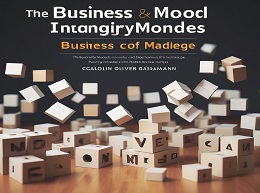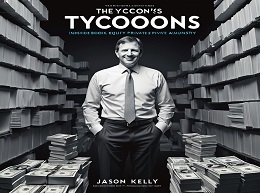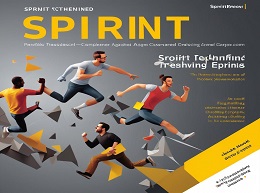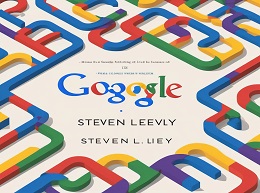Disrupted: My Misadventure in the Start-Up Bubble

Inside the Start-Up Bubble: A Review of "Disrupted" by Dan Lyons
Dan Lyons’ "Disrupted: My Misadventure in the Start-Up Bubble" offers a hilarious yet critical exploration of the tech start-up world. Lyons, a seasoned journalist, takes readers on his journey as he transitions from a stable career in traditional media to a chaotic role at a high-flying tech company. This review delves into the key themes of the book, highlights memorable anecdotes, and examines Lyons’ insights on the broader implications of the start-up culture.
From Journalism to Tech
Dan Lyons, known for his work at Newsweek and his satirical blog "The Secret Diary of Steve Jobs," found himself out of a job in his early fifties. Facing an uncertain future in journalism, Lyons accepted a position at HubSpot, a Boston-based marketing software company. His memoir chronicles the culture shock he experienced and the absurdities he encountered.
Example: The HubSpot Hiring Frenzy
Lyons was astounded by the recruitment process at HubSpot, where young employees were hired en masse and often lacked relevant experience. The hiring sprees seemed more focused on creating a youthful, vibrant image rather than building a competent workforce.
The Illusion of Innovation
Lyons highlights the gap between the proclaimed innovation of tech start-ups and the reality of their operations. Many companies, including HubSpot, marketed themselves as pioneers of groundbreaking technology, yet often, their products were incremental improvements rather than revolutionary changes.
Example: The “Inbound Marketing” Hype
HubSpot’s core product, which centered on the concept of inbound marketing, was touted as a revolutionary approach to marketing. However, Lyons argues that it was essentially a repackaging of existing strategies with a heavy dose of buzzwords.
The Perks and Pitfalls
Tech start-ups are notorious for their lavish perks, which Lyons describes in both awe and disbelief. From free beer and snacks to game rooms and nap pods, these perks are designed to create an appealing work environment. However, Lyons suggests that they also serve to blur the lines between work and personal life, keeping employees at the office longer.
Example: The Office Dog Policy
One of the quirky perks at HubSpot was the allowance of office dogs. While initially charming, the policy sometimes led to chaos, with dogs barking during meetings and employees getting distracted by pet-related duties.
The Cult of Youth
Lyons points out the ageism prevalent in the tech industry. Start-ups often glorify youth, equating it with innovation and energy, while sidelining older, experienced workers. This bias creates a culture where superficial markers of youth, such as trendy clothing and millennial slang, are highly valued.
Example: The “Culture Fit” Interviews
At HubSpot, potential hires underwent “culture fit” interviews to ensure they aligned with the company’s youthful, energetic ethos. Lyons, in his fifties, found this emphasis on fitting in with a young, hip culture to be both exclusionary and absurd.
The Obsession with Growth
A recurring theme in "Disrupted" is the relentless pursuit of growth at any cost. Start-ups like HubSpot often prioritize rapid expansion over sustainability, leading to high employee turnover and questionable business practices.
Example: The IPO Pressure
HubSpot’s journey to its Initial Public Offering (IPO) was marked by intense pressure to show exponential growth. Lyons describes how this focus on short-term gains sometimes led to ethical compromises and strategic missteps.
The Reality of Tech Jobs
Despite the glamorous image portrayed by tech companies, the reality for many employees can be starkly different. Lyons recounts the high levels of stress, long hours, and lack of job security that are often part and parcel of working in start-ups.
Example: The “Bozo Explosion”
Lyons uses the term “bozo explosion” to describe the influx of inexperienced employees who were promoted rapidly without proper training or competence. This phenomenon often resulted in poor decision-making and increased workplace frustration.
The Bubble Mentality
Lyons likens the start-up ecosystem to a bubble, inflated by hype and speculative investment. This bubble mentality fosters an environment where financial valuations are often disconnected from actual business performance, creating a precarious foundation for long-term success.
Example: The Overvalued Start-Ups
Lyons provides examples of start-ups with sky-high valuations despite unproven business models. He argues that this overvaluation is symptomatic of a larger issue within the tech industry, where hype frequently overshadows substance.
The Ethical Quandaries
Throughout the book, Lyons raises important ethical questions about the start-up culture. From deceptive marketing practices to the exploitation of workers, he calls for a more honest and responsible approach to business.
Example: The Email Scandal
One of the more shocking revelations in "Disrupted" involves a clandestine email campaign orchestrated by HubSpot executives. Lyons details how this unethical behavior was symptomatic of a culture that prioritized appearances over integrity.
Lessons from the Start-Up Bubble
"Disrupted: My Misadventure in the Start-Up Bubble" is more than just a humorous account of one man’s experience in the tech industry; it is a cautionary tale about the excesses and pitfalls of start-up culture. Lyons’ insider perspective offers valuable lessons for aspiring entrepreneurs, employees, and investors.













